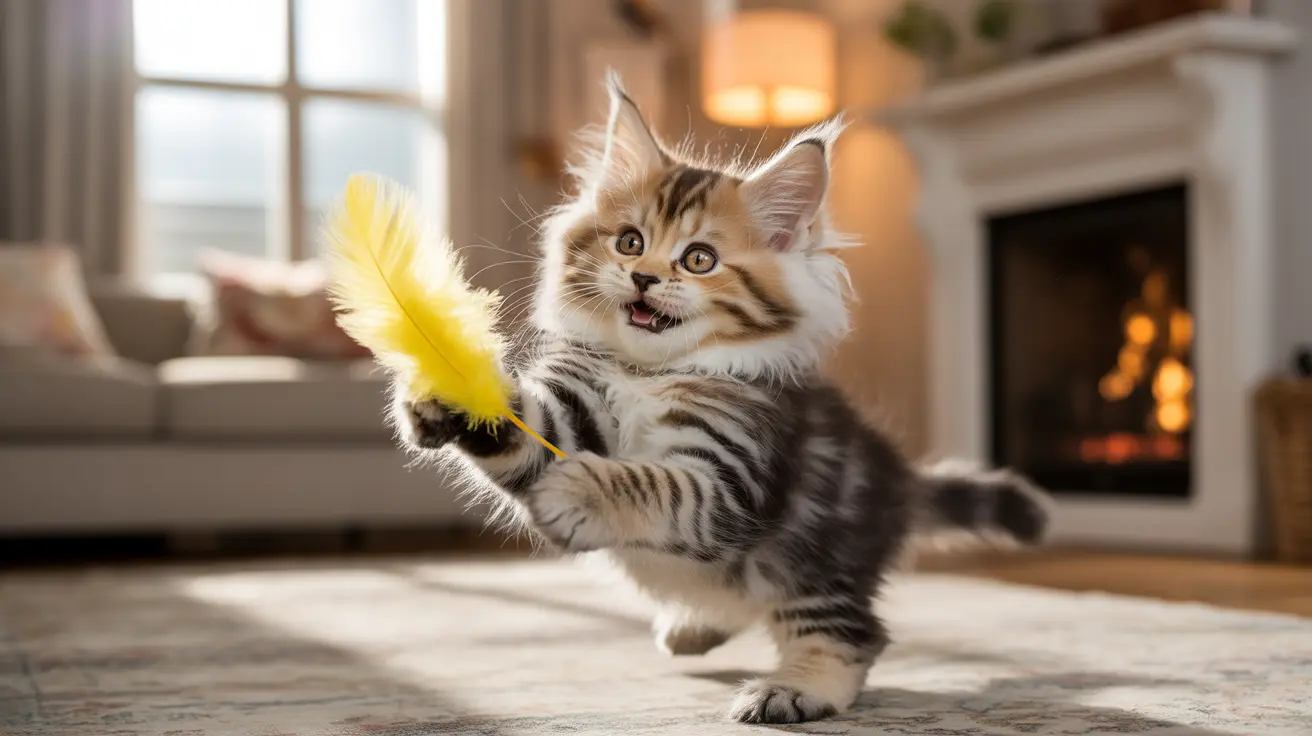Physical Development and Growth Milestones
At five months, your kitten is approaching the halfway point to their adult size. Most kittens weigh approximately 5 pounds at this age, though this can vary by breed and individual genetics. Their muscles and bones are developing rapidly, supporting their increasingly athletic abilities.
This stage also marks the beginning of sexual maturity for many kittens, making it a crucial time to discuss spaying or neutering with your veterinarian. Early intervention can prevent unwanted pregnancies and reduce future health risks.
Energy Levels and Behavioral Changes
Five-month-old kittens are bundles of energy, often displaying frequent bursts of activity followed by deep sleep cycles. You'll notice peak activity levels during dawn and dusk, reflecting their natural hunting instincts.
During this stage, kittens may test boundaries through aggressive play or scratching. It's essential to provide appropriate outlets for this energy through interactive toys and structured play sessions.
Nutrition and Feeding Requirements
Proper nutrition remains crucial for your growing kitten. They should be eating high-quality kitten food specifically formulated for their developmental needs. Most kittens at this age require 2-3 meals daily, with portion sizes based on their weight and activity level.
Always ensure fresh water is available, and monitor their eating habits for any sudden changes that might indicate health issues.
Healthcare and Preventative Measures
Your 5 month old kitten should be completing their initial vaccination series and preparing for regular preventative care routines. Regular vet check-ups help monitor growth progress and address any potential health concerns early.
This is also the ideal time to establish grooming routines, including nail trimming, brushing, and dental care, which will benefit them throughout their lives.
Creating the Perfect Environment
Provide your kitten with a stimulating yet safe environment that includes:
- Multiple scratching posts
- Climbing structures
- Comfortable resting spots
- Interactive toys
- Safe hiding places
Environmental enrichment helps prevent behavioral issues and supports healthy physical and mental development.
Frequently Asked Questions
How much should a 5-month-old kitten weigh and how fast are they growing?
A typical 5-month-old kitten should weigh around 5 pounds, though this can vary by breed. They're growing rapidly and should reach about half their adult size by this age.
When is the best time to spay or neuter my 5-month-old kitten?
Five months is typically an ideal time for spaying or neutering. Most veterinarians recommend the procedure between 5-6 months of age, before sexual maturity is fully reached.
How can I manage my 5-month-old kitten's high energy and play aggression?
Provide regular interactive play sessions, appropriate toys for solo play, and climbing structures. Redirect aggressive behavior to toys, and never use physical punishment. Establish consistent play routines, especially during peak activity times.
What kind of food and feeding schedule is recommended for a 5-month-old kitten?
Feed high-quality kitten food (wet, dry, or both) 2-3 times daily. Follow portion guidelines based on weight and activity level. Avoid adult cat food as it doesn't provide the necessary nutrients for growth.
What vaccines and veterinary care does a 5-month-old kitten need?
By five months, kittens should be completing their core vaccination series, including FVRCP and rabies. Regular deworming and flea prevention should be maintained, and wellness check-ups scheduled as recommended by your veterinarian.
Conclusion
Caring for a 5 month old kitten requires attention to their physical, nutritional, and social needs. By providing appropriate care during this crucial developmental stage, you're setting the foundation for a healthy, well-adjusted adult cat. Remember to maintain regular veterinary check-ups and adjust care routines as your kitten continues to grow and develop.






